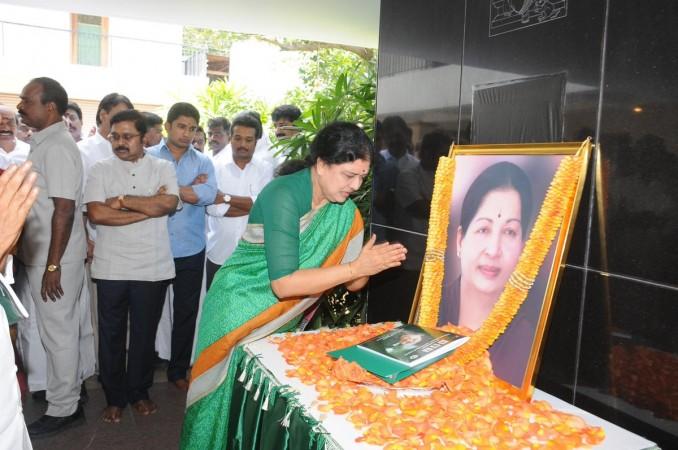
The elevation of Sasikala Natarajan as the chief minister of post-Jayalalithaa Tamil Nadu has sparked off a big controversy. Chinnamma's taking over the top post from O Panneerselvam, who served as the interim chief minister of sorts for two months after the demise of Amma, has not been received well, so much so that even Ravichandran Ashwin, the ace Indian cricketer from the state, has taken a dig at the political situation by tweeting: "To all the youngsters in TN, 234 job opportunities to open up shortly."
Times have changed and it is for the better.
Also read: Celebs and netizens raise their voice against 'Chinnamma' Sasikala Natarajan becoming Tamil Nadu CM
The latest drama in Tamil Nadu politics takes one back to October 31 1984, when former Indian prime minister Indira Gandhi was assassinated by her Sikh bodyguards, leaving the country rudderless. It was her son Rajiv Gandhi who was made the prime minister in the wake of the tragedy. Rajiv, a former pilot, was hardly a pro in politics then and his experience was limited to being the MP from Amethi where he succeeded his dead younger brother Sanjay in 1981. A lot of speculation made the rounds as to how Rajiv was announced as Indira's successor when there were senior leaders like Pranab Mukherjee. The 'family succession' was seen as an anti-thesis to the idea of democracy that India had been for 37 years at that time.
There was hardly any resistance in those days
When the Gandhis were at their prime, there was hardly any strong all-India Opposition (the BJP was just four years old then), a vocal media or a strongly opinionated social media. Politicians could keep a 'safe distance' from the people to execute their agenda. The idea of dynasticism had become so deeply entrenched in India's public life that Rajiv's automatic succession was considered a normal turn of events.
The Indian democracy is no more one-dimensional today
India's democracy is no more a centralised, one-dimensional affair where the pinnacle of the pyramid is not inaccessible to the common man. Thanks to the empowerment that factors like social media have blessed the commoners with, they do not really have to wait for five years to let others know their opinions.
So when a Chinnamma gets an easy access to the CM's post despite having no popular mandate, India strongly disapproves of it. Even Jayalalithaa, who had to come out of the shadow of MG Ramachandran, had done so by contesting and winning elections. Sasikala is a complete fresher in politics.
Democracy in India is a two-edged sword. And Tamil Nadu has shown both its sides recently. On one hand, we saw how people defied even the top court to carry on with their favourite game of Jallikattu, earning democracy the bad name of a mobocracy. On the other, the same 'demos' are raising a voice against Sasikala's undemocratic access to the CM's chair. Even a cricketer, who generally plays it diplomatically when it comes to politics during his/her playing days, has not thought twice before objecting to the decision.
Long gone are the days when politicians held the country to ransom emotionally to extend their control over power. It's a new India where a new reality resides. Sasikala is likely to get to know that soon.

















